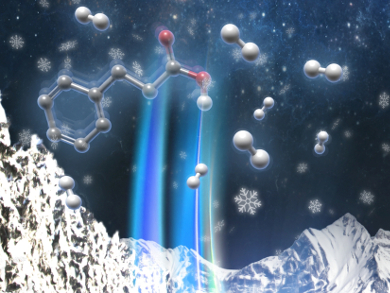The reduction of carboxylic acids to form alcohols is a key synthetic transformation for the pharmaceutical and fine-chemical industries as well as for biomass conversion. However, the use of stoichiometric amounts of strong reducing agents has serious disadvantages.
Ken-ichi Shimizu, Takashi Toyao, Hokkaido University, Japan, and colleagues have developed a heterogeneous catalyst for the selective catalytic hydrogenation of carboxylic acids under mild conditions (5 MPa hydrogen at 140 °C). Unlike typical heterogeneous catalysts, Re/TiO2 does not lead to the formation of dearomatized byproducts. The catalyst is recyclable and shows a wide substrate scope in the synthesis of alcohols (22 examples; up to 97 % isolated yield).
Density functional theory (DFT) calculations suggest that the high affinity of Re toward carboxyl groups over the benzene moiety is one reason for the high selectivity for alcohol formation without concomitant hydrogenation of aromatic rings. This versatile catalyst can be prepared by a simple impregnation method and promotes the selective alcohol-forming hydrogenation of carboxylic acids that contain both aromatic and aliphatic moieties.
- TiO2-Supported Re as a General and Chemoselective Heterogeneous Catalyst for Hydrogenation of Carboxylic Acids to Alcohols,
Takashi Toyao, S. M. A. Hakim Siddiki, Abeda S. Touchy, Wataru Onodera, Kenichi Kon, Yoshitsugu Morita, Takashi Kamachi, Kazunari Yoshizawa, Ken-ichi Shimizu,
Chem. Eur. J. 2016.
DOI: 10.1002/chem.201604762




